10 Things You Should Refrigerate (But Probably Aren't)

Don't let those groceries to go to waste!
There are some things we do in the kitchen that are grounded in knowledge, the kind that was picked up from a reliable source like Mama, Grandma, or Great Aunt Ida. But there are passed-down tidbits from these great ladies, and the ones who came before, that might not be as sound as we were led to believe. One area that certainly requires a modern-day revisiting is the question of which foods require refrigeration and which are perfectly suited for a life on the pantry shelf. Whether Mama told you it was safe to store the ketchup in the pantry or you do it out of pure convenience (refrigerator space comes at a premium, we know), it's time to settle the question. Here are 10 items you absolutely should store in the refrigerator.
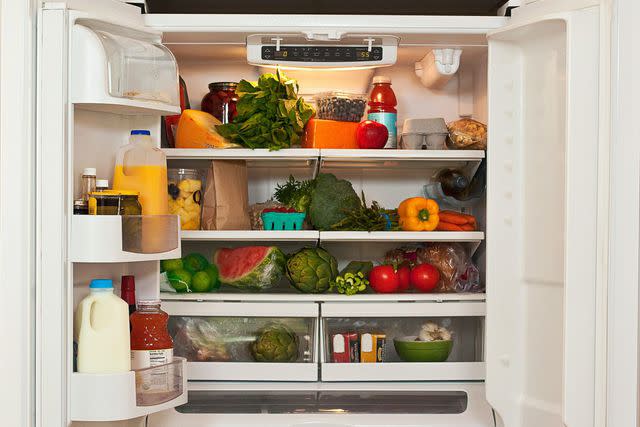
Getty/Karen Moskowitz
1. Citrus
While showcasing lemons and limes in a pretty bowl on your counter can be tempting to achieve an air of put-together-ness, citrus fruits will last up to four times longer when stored in the refrigerator. If you absolutely must, simply opt to bring out your citrus centerpieces only when expecting guests.
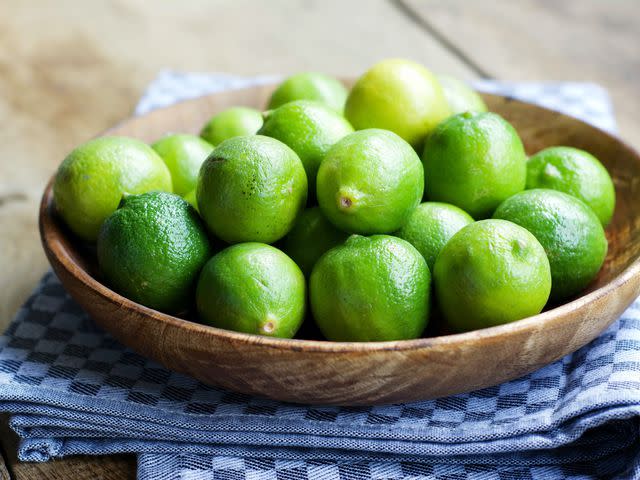
2. Tortillas
While refrigerating loaves of bread can cause the inside to dry out and turn stale more quickly than you would predict (and present quite a challenge in slicing when it comes to a thick loaf, such as sourdough), the opposite is true when it comes to thin tortillas. Because of its thinness, there's less opportunity for cold air to infiltrate empty pockets and dry it out. Tortillas are also prone to molding, so tossing them in the refrigerator is always the safest bet and can help them last up to twice as long.
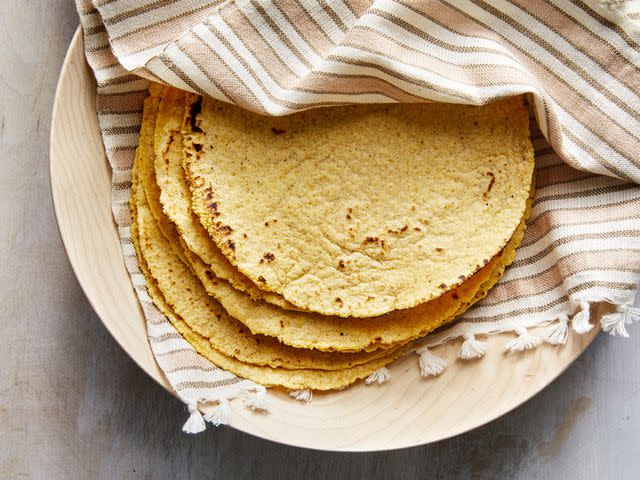
3. Natural Peanut Butter
Whether you should store natural peanut butter in the refrigerator depends on how quickly you eat it. If you'll finish the jar within a few weeks of opening, it's fine to store in a cool, dark place (i.e., the pantry), but if you like to linger over your PB, it's best to pop it into the fridge as the butter's separated oil can turn rancid if left at room temperature for too long.
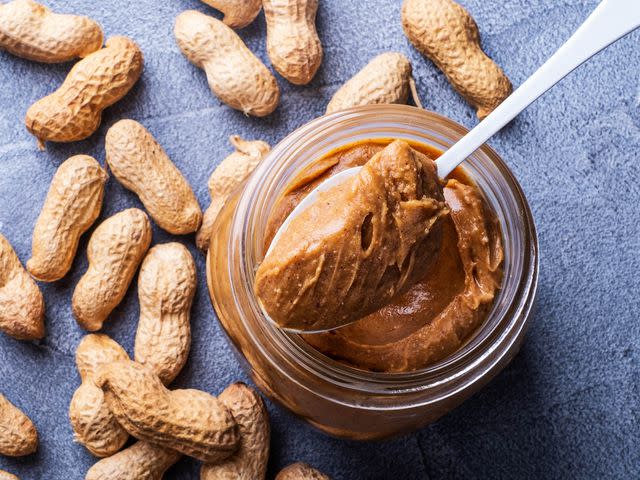
4. Butter
The benefit of keeping butter on the countertop is its spreadable consistency. Unfortunately, if you keep it at room temperature for more than a day or two, it can turn rancid, resulting in flavor changes that are less than savory.
The best strategy for spreadable butter that doesn't go bad is to leave out just enough butter for mealtime. Take your portion for use out of the fridge about an hour before needed so it can soften properly. If you need to soften a lot of butter in a short amount of time, there are a few shortcuts you can try, like grating it or using the jar method.

5. Ketchup
So, you've kept your opened ketchup bottle in the pantry for as long as you can remember, using the "restaurants do it" argument with whomever challenges your room-temp storage method? Sorry to say, it's time to toss that old bottle and get a new one that you promptly store in the refrigerator upon opening.
Heinz asserts that their ketchup is shelf-stable due to its natural acidity but should be refrigerated after opening to maintain its quality. So, there you have it. Put that ketchup in the fridge, friends.
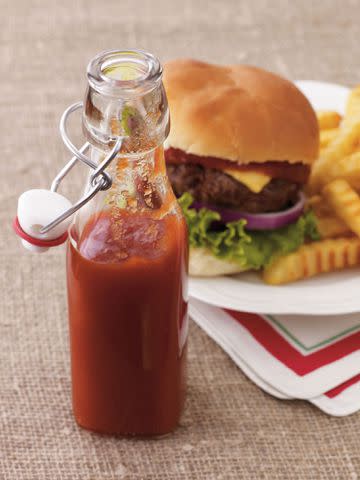
6. Pies
After removing a pie from the oven it should be left to cool to room temperature for two to four hours. After that, whether it requires refrigeration is up to your filling.
Fruit pies can be stored on the countertop for up to two days, thanks to sugar and acids that ward off bacteria growth. Pies with a custard or pudding filling (think pumpkin or banana cream) and pies containing dairy products or chocolate should be stored in the refrigerator once they've cooled.
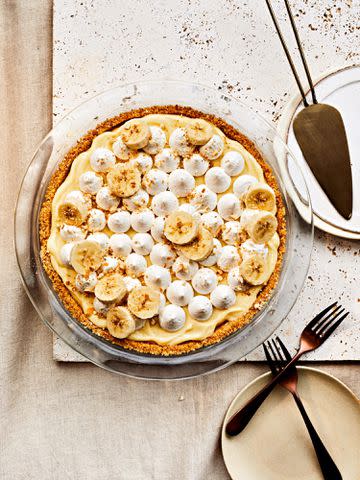
7. Syrup
Refrigeration rules for syrup depend on the variety. Pure maple syrup should be refrigerated once opened as it does not contain preservatives. When it's stored in the refrigerator, its life can be prolonged, preventing it from growing mold or going bad prematurely.
Table syrup, pancake syrup, or breakfast syrup (depending on what you call it) can be stored in the pantry once it's opened because it's not a natural substance pulled straight from trees and, therefore, not primed to spoil as quickly. Homemade simple syrups, used to brighten cocktails or add a touch of sweetness to freshly brewed tea, should be stored in an airtight container in the refrigerator for up to two weeks.

8. Eggs
Grandma may have stored her hens' fresh-laid eggs on the countertop, but we're a long way from the farm. In most cases, our eggs come from a refrigerator at the grocery store. The USDA says that leaving a carton of cold eggs on the countertop will cause them to sweat, increasing the risk of Salmonella bacteria invading the shell. Always store eggs in the refrigerator. And no, hard-boiled eggs aren't safe to leave at room temperature—boiling eggs actually removes their protective coating and makes them more susceptible to spoiling.
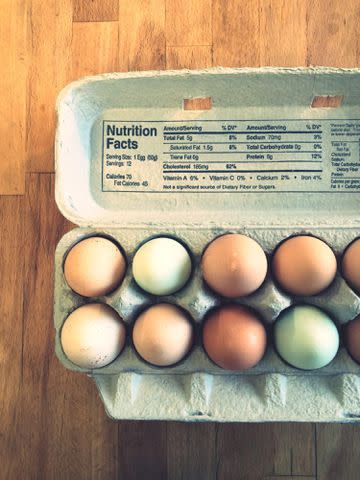
9. Corn On The Cob
Since you found your corn on the cob in a big cardboard bin at the store, you might assume you don't need to refrigerate it. You would be wrong. The sugars in corn kernels break down very fast, turning your corn unpleasantly starchy. If you're not planning to prepare corn on the cob the day you bought it, stick the unhusked ears in the refrigerator to preserve their sweetness.
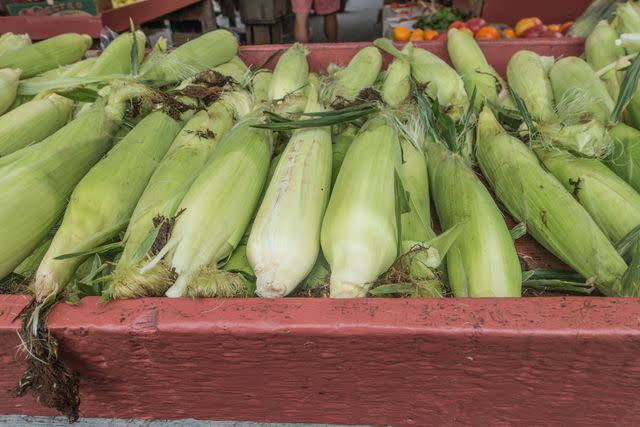
10. Whole Wheat Flour
Whole wheat flour isn't nearly as shelf-stable as white, according to the experts at King Arthur Baking Company. The wonderfully sweet and nutty flavor fades quickly unless stored in an airtight container in a cool environment. Whole wheat flour can last up to six months in the freezer and a slightly shorter time in the fridge. Stick it in the back of the refrigerator where it will stay extra cool.
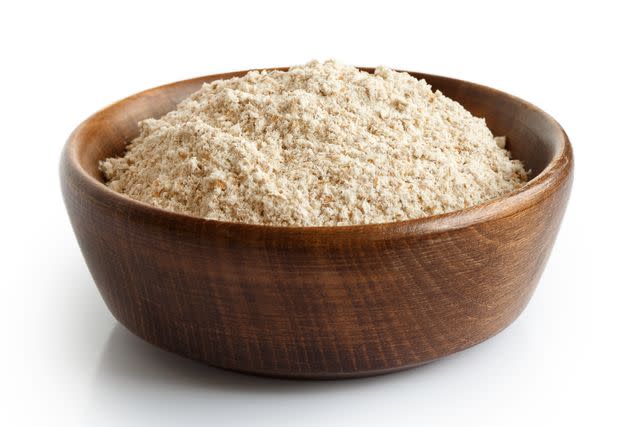
Getty Images/etienne voss
For more Southern Living news, make sure to sign up for our newsletter!
Read the original article on Southern Living.